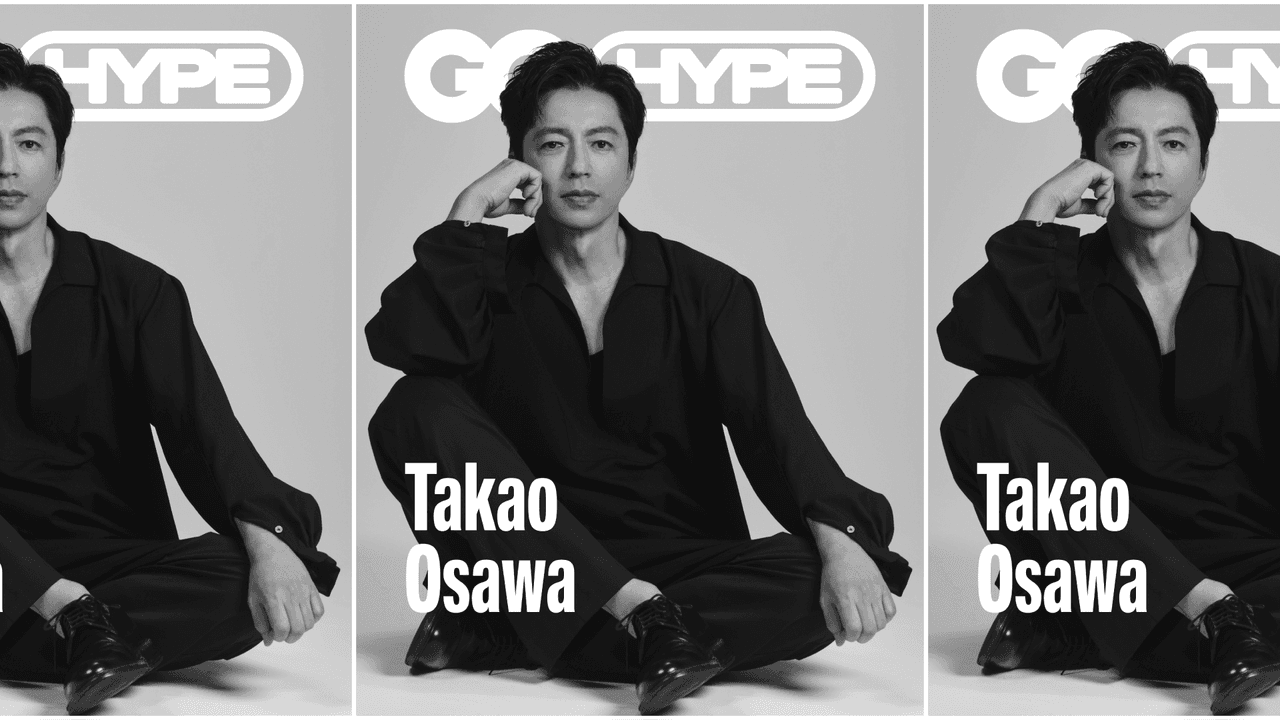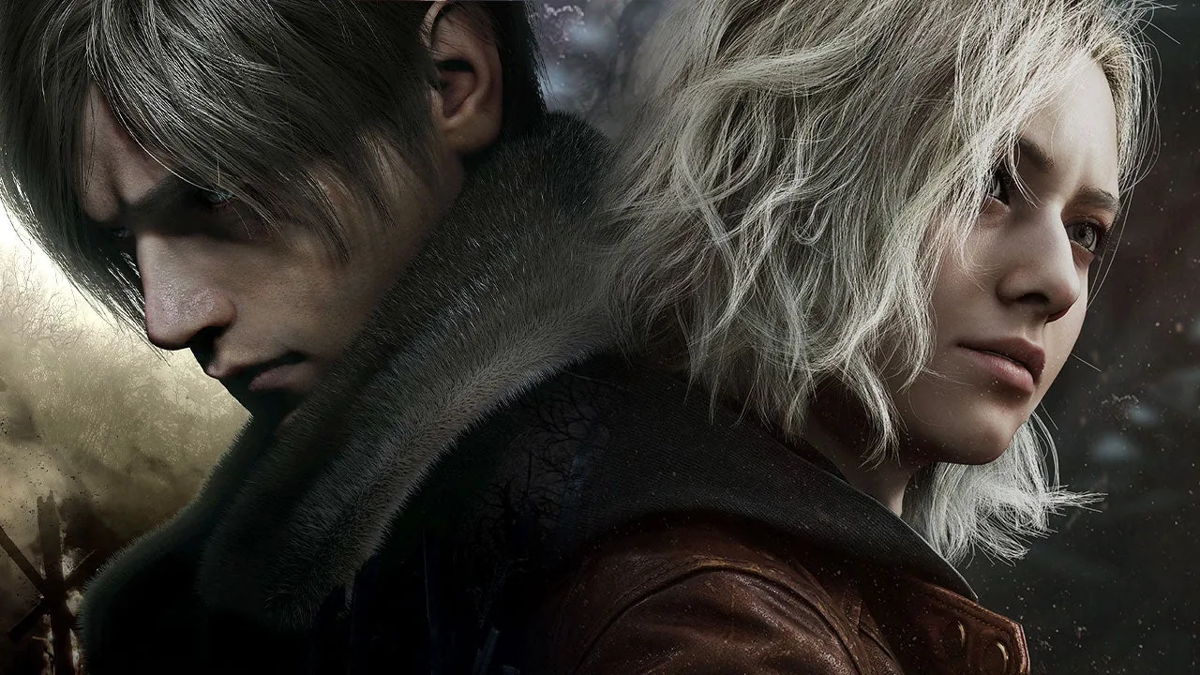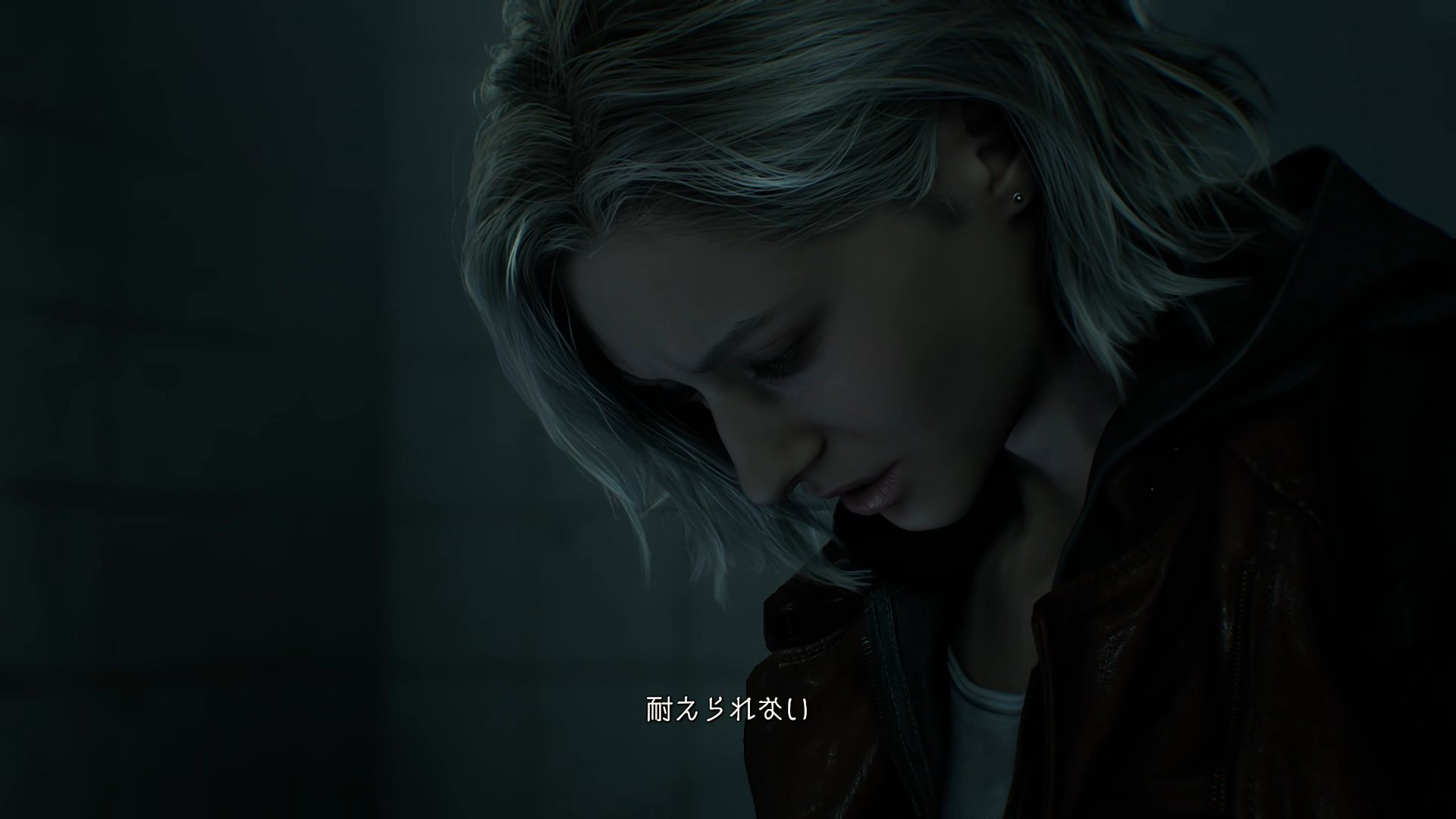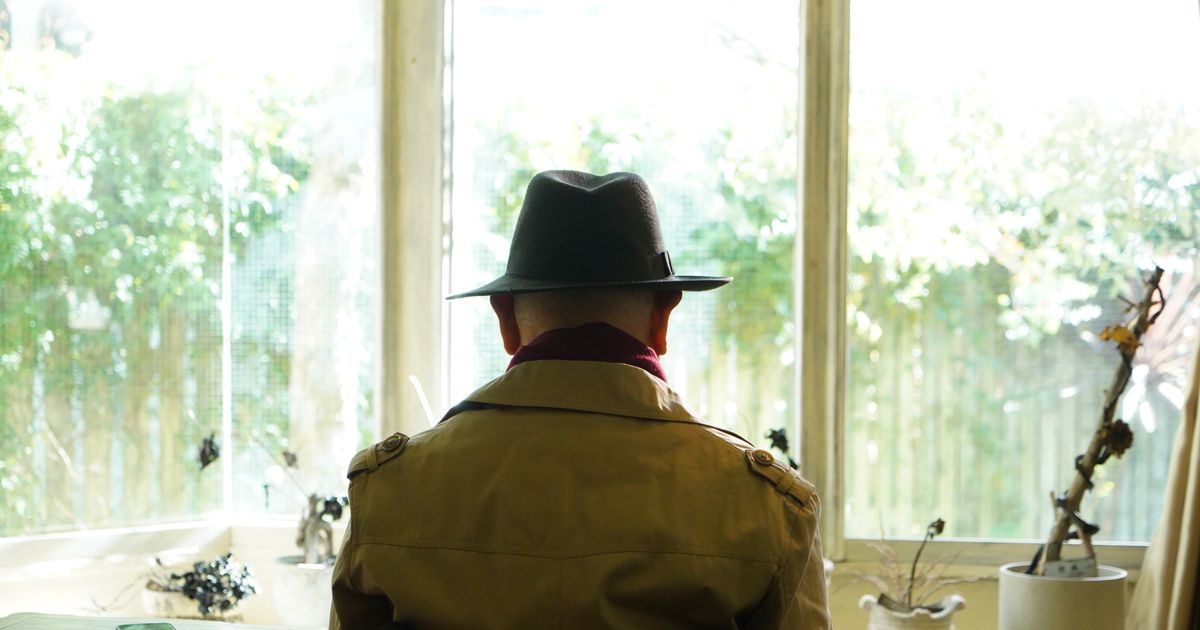大沢たかお「犠牲を払えない人に成功はないと思っています」──映画『沈黙の艦隊 北極海大海戦』は9月26日公開

9月26日に映画『沈黙の艦隊 北極海大海戦』が劇場公開を迎える大沢たかおは、本作で主演だけでなくプロデューサーも兼務。映像化にあたっては、原作者・かわぐちのもとに自ら足を運んでプレゼンを行い、防衛省や海上自衛隊に協力を要請するなど実現に奔走したスピソードはご存知の方も多いだろう。
ギャラリー:大沢たかお「犠牲を払えない人に成功はないと思っています」──映画『沈黙の艦隊 北極海大海戦』は9月26日公開
24 Photos
By SYO
一方で、その威光ばかりに目を向けて彼という人間そのものに踏み込んでこなかったのではないか──という反省から、神格化も偶像化もせず、いち表現者として、生身の大沢たかおに迫りたいという取材テーマを告げると、映画少年時代を振り返りながら、現在に至るまでの“選択”の数々を語り始めた。
『沈黙の艦隊』や『キングダム』のような長期企画に携わるとなれば、その間にほかの仕事を制限しなければならない場面も少なくないだろう。『沈黙の艦隊』ではプロデューサーも兼ねるなら尚更だ。各方面から引っ張りだこの状態で不安はなかったのか?と尋ねると、大沢は首を振った。
「僕はお陰様で奇跡的に出合えていますが、本当に凄い作品との出合いは10年に1本あればラッキーだと思っています。『沈黙の艦隊』にかかった3~4年の期間を使って、5・6本の映画を撮ったとします。“やった感”は確かにあるかもしれませんが、2本も3本も“凄かったね”とはなりません。1本あればいいほうだと思っていますし、だったらその1本に自分のエネルギーをすべて注いだほうが悔いを残しません。
『沈黙の艦隊』も、1作目が失敗していたら次はありませんでした。全力でやりきった結果として続編の製作が決まったわけで、Amazonも僕たちももっと成功させなければならないという覚悟を持ち、さらなるハードルを課して臨みました。そういった意味では、今回もあくまで“1本”なのです。もし数が重要なのだったら、ダニエル・デイ=ルイスはどうなるの?という話になってしまいますから」
大沢が名を挙げたのは、『マイ・レフトフット』『ゼア・ウィル・ビー・ブラッド』『リンカーン』でアカデミー賞主演男優賞を3回受賞している名優だ。何度も俳優業を休業・引退しており、納得できた作品に巡り合えたときのみ復帰するスタンスを貫いている。
オスカー候補に選出された『ギャング・オブ・ニューヨーク』『ファントム・スレッド』も含めると、寡作ながら驚異的な打率を誇る人物でもある(2025年には息子ローナン・デイ=ルイスの映画監督デビュー作『Anemone』で8年ぶりの復帰を予定)。
大沢は「良い悪いは置いておいて、それだけ彼はひとつの作品にすべてを懸けています。そのためには当然、ほかを切り捨てなければいけない。その犠牲は恐怖ではあるけれど、犠牲を払えない人に成功はないと僕自身も思っています」と言い切った。
実は大沢自身、NHK大河ドラマ『花燃ゆ』(15)に出演して以来、「良いパフォーマンスができない気がした」と約2年間休業していた過去をもつ。そんなときに舞い込んだオファーが、後に『沈黙の艦隊』でも組むことになる松橋真三プロデューサーが名を連ねた『キングダム』だった。
「何本もやったって、自分の表現が薄くなるだけ。記憶にも残りませんし、それで評価されてもうれしくありません」というスタンスの大沢が、似た者同士なデイ=ルイスにシンパシーを抱くのは自然な流れだっただろう。妥協するくらいなら自分はやらない──。『沈黙の艦隊』実写化プロジェクトへの参加を決めたのも、自身の信念に合致したからに他ならない。
「僕は仕事でもプライベートでも世界中を回ってきましたが、かつてはどこに行っても日本製品が選ばれていたり日本企業の看板を見かけていたものが、だんだんとそうではなくなっていく過程を目にしてきました。
国力の衰退や安全保障の問題も含めて“自分たちのいる場所が今後どうなっていくんだろう”と考えていたのですが、日本の未来、それどころか土台が不安定になってきた中でのエンターテインメントの在り方について松橋さんたちと意見を交わしていたときに、『沈黙の艦隊』が今の時代にぴったりという話が出たのです。
当時はウクライナとロシアがまだ戦争を始める前で、こうした題材に対して世間的な関心は決して高くはなく、少し距離もあったかと思います。我々としては根底に深いメッセージは込めつつも、あくまでエンタメとして届けようとしていました。僕たちは人々に感動を届けるのが仕事ですから」
社会情勢が加速度的に不安定感を増していく中、最新作『沈黙の艦隊 北極海大海戦』が公開を迎える。
「原作の発表から約30年が経ったいま、シビアな有事のなかで公開されることに複雑な想いはあります。ここで描かれる内容は本来、エンタメの中だけで終わるべきことですから」
プロモーションの一環のインタビューではあれど、大沢が紡ぐ言葉には誇張も虚飾もない。表現者としての責務を全うしつつ、自分が納得できるものづくりに邁進したいという純粋な情熱が強く感じられる。近年、プロデューサーも兼ねる俳優が国内でも増えてきた傾向について意見を求めると「何でもやれる人はやるべきだし、監督兼プロデュースでも、プロデュース兼出演でも、どんなやり方でもありだと思います」と肯定しつつも、こう付け加えた。
「成功しないといけません。僕たちはプロですから『楽しくやりました』『トライはしました』では済まされません。趣味でやっているわけではないですから、失敗したらその代償を払うことになります。ポジションが倍になれば、当然責任も倍になり、代償も比例して大きくなるもの。僕自身、失敗した時のこの業界の冷酷さは身をもって理解しているつもりです。その覚悟をできるならば、皆トライするべきだと思います」
本気で向き合っているからこそ、リップサービスなどは行わない。代表作の1つである『世界の中心で、愛を叫ぶ』を例に挙げ、成功を掴むための“犠牲”について続ける。
「予算は決して多くない作品でしたから、現場では毎日のようにカメラマンや監督が『もっとフィルムが欲しい』とプロデューサーに直訴していて、お金がない中でも執念深く朝から準備している照明さんたちスタッフの姿も見ていました。
そして、長澤まさみちゃんは次の仕事ができなくなるのもいとわずに本人の希望で髪の毛を全部剃った。森山未來くんも僕と顔が似ているから起用されたと言われた悔しさをバネにしていて、みんながみんな何かを犠牲にして作り上げた作品でした」
2004年に公開された映画『世界の中心で、愛をさけぶ』は、興行収入85億円、観客動員数620万人を記録し、この年の実写映画No.1になるなど、大ヒットを記録した。
「これはどんな現場を見ていても思うことですが、成功を収めた作品は例外なく、相応に大きなものを失っています。『沈黙の艦隊』のような作品は長期戦になりますし、かかる予算も莫大で、責任も付きまといます。“すみません失敗しました。また次頑張りましょう”と言える額ではありませんから。それでいて、関わる皆が様々なものを犠牲にしないといけない。しかし不思議なもので、それと引き換えに特殊で強烈なエネルギーが宿り、お客さんの心を捉えて離さない“何か”が生まれるのです」
「代償を恐れる人間に、成功は舞い降りない。他人様はわからないけれど、僕のキャリアの中でそれだけは変わりません」と結んだ大沢。何かを得るため、何かを失う──。豊富な経験則を基にした人生哲学は重く、身体の髄にまでずしんと響く。『沈黙の艦隊』の成功は、決してラッキーパンチなどではない。筆舌に尽くしがたい犠牲の等価交換があったのだ。俳優・大沢たかおはこれまでも今日も、そんな過酷な世界で生きている。
この後は、「銀座と池袋と新宿を回る映画チラシ少年でした」という大沢たかおが、GQ HYPEの一問一答に答えた。
映画『沈黙の艦隊 北極海大海戦』
公開日:2025年9月26日(金)監督:吉野耕平脚本:髙井光
出演:大沢たかお、上戸彩、津田健次郎、中村蒼、松岡広大、前原滉、渡邊圭祐、風吹ジュン、トレアン・トーマス、ブライアン・ガルシア、ドミニク・パワー、リック・アムズベリー、岡本多緒、酒向芳、夏川結衣、笹野高史、江口洋介
原作:かわぐちかいじ「沈黙の艦隊」(講談社「モーニング」)──料理はされますか?
基本的に料理はしないんですけれど、作品に合わせて体重をコントロールする時だけ、自分で料理します。タンパク質や、塩分量を気にしなきゃいけないんで。ただ、料理っていうもののうちには入らないですよね。正直、餌を入れる作業っていう感じです。
──大谷翔平みたいですね。鶏ムネ肉、ブロッコリー、塩パスタみたいなメニューなんでしょうね。
体を大きくするにはそれ以外にないんですよ。とにかく塩分が地獄ですよね、塩分を控えるのが。
──塩分を控えるのが地獄。味がつまらないという意味の地獄ですか?
塩や醤油で生きてきた人間だし、それがないっていうのはすごい辛いんですよ。やっぱり飽きますし、食事が嫌になる。だけど、体を大きくするには仕方ないですけど。
──影響を受けた映画監督、あるいは俳優はどなたでしょうか?
直接会った中ではあまりないんですけれど、ただ映像を観た中で影響を受けた方はもちろんいっぱいいます。先人たちの映画を観て僕は育ちましたから。いつ観たのかは覚えてないんですけれど、父親と観に行った映画『アンタッチャブル』、アル・カポネ役のロバート・デ・ニーロは強く印象に残っています。自分が別作品のビデオで観た人とまったく違う顔で現れた時に、俳優ってこういうものなんだなと思いましたね。日本では、金子正次さんが主演・脚本をつとめた映画『竜二』。金子正次さんが演じているヤクザがすごい衝撃だったんです。オールバックで、スーツを着て、というヤクザと全然違う存在で、ステレオタイプじゃないっていうのはこういうことか、と。早い段階で観られたのは大きかったですね。
──それらは何度も見返す作品ですか?
『アンタッチャブル』や『竜二』は、作品に入る前だったりよく観ます。僕はリアルタイムではないんですけれど、ジェームズ・ディーンの影響も大きい。『エデンの東』『理由なき反抗』『ジャイアンツ』から学んだことはいっぱいあって。型にハマってないというか、常識とかルールを突き破った表現をするというか、エンターテインメントに携わる人にとって不可欠な感覚かもしれません。かっこいい、かっこ悪いということではなく、映画とドラマの違いをジェームズ・ディーンの芝居から学んだ気がします。
──3人に共通するのは、型破りなスタイルということになりますか?
型をぶち壊してくるし、そこにみんな魂がある。僕が子供の頃に観た役者たちには共通しています。そして20歳前後に観た『ブラックレイン』の松田優作さんでしょうか。
──大沢さんと松田優作、ちょっと意外です。何がそんなに突き刺さったんでしょうか?
自分が知っている松田優作じゃないんです。あの髪形でハリウッド映画で急に出てくるわけじゃないですか。すごいインパクトでした。
──『ブラックレイン』を観て、松田優作の作品をもう一回観直したんでしょうか?
いや、僕はもともと松田優作さんが好きだったんです、一映画好きとして。僕、銀座と池袋と新宿を回る映画チラシ少年で、キネマ旬報に投稿したこともあるくらいチラシをたくさん持ってたんですよ。だから映画にはすごく詳しかったんです。もちろん松田優作さんの作品はたくさん観ていたんですけれど、『ブラックレイン』の優作さんはこれまでとまったく違って抜群に良かった。その時に思ったのが、「この人の素晴らしい才能を発見したのが、なぜアメリカ人だったんだろう?」ということ。その気持ちはその後もずっと残っています。
──我々はあの才能を見つけられなかったのか、と。
あの狂気を出せなかったですね。やっぱり自分の人生に大きな影響を与えた人かもしれないですね。ただ、当時は俳優なんか目指してないですよ。目指してないのにそこまで覚えているくらいですから、かなりのインパクトを残したということでしょうね。
シャツ¥57,200 BY SARTO(サルト)、パンツ¥42,900 BY ATTACHMENT(サカス ピーアール) その他スタイリスト私物
大沢たかお
Takao Osawa
東京都生まれ。1994年に俳優デビュー。圧倒的な存在感で物語に華を添える。ドラマ『JIN - 仁 -』、映画『キングダム』など当たり役も多く、かわぐちかいじ原作の映画・ドラマ『沈黙の艦隊』も話題となっている。大沢たかおInstagram【@osawa_takao.official】
写真・長友善行 YOSHIYUKI NAGATOMOヘア&メイク・髙取篤史 ATSUSHI TAKATORI @ SPECスタイリング・黒田 領 RYO KURODA翻訳・Lena Grace Suda 文・SYO
文(Q&A)と編集・神谷 晃 AKIRA KAMIYA @GQ
“Those Who Don’t Make Sacrifices Won’t Succeed”—The Silent Service: Arctic Ocean Battle Starring Takao Osawa, in Theaters September 26
The Silent Service: Arctic Ocean Battle will be released in theaters on September 26th. Takao Osawa, the producer and lead actor of the film, looks back on the many choices he’s made in his life.
Awaiting the release of The Silent Service: Arctic Ocean Battle on September 26th is Takao Osawa, who not only stars in the film but also produced it. The lengths he went to in order to adapt the film are well-known. He visited the author of the original manga, Kaiji Kawaguchi, to pitch the idea of a film adaptation and also requested the cooperation of the Ministry of Defense and the Maritime Self-Defense Forces.
Reflecting on whether we’ve been focusing solely on Osawa’s fame instead of learning about who he is as a person, I told him that my goal for this interview was to approach the real him as an artist without glorifying or idolizing him. Soon, he began to talk about the many choices he’s made thus far, from his adolescence as a movie fan to the present day.
Takao Osawa’s work ethic
It's no surprise that Osawa likely has to limit his involvement in other projects when working on long-term ones, such as The Silent Service and Kingdom. This is especially the case for The Silent Service, as he served as the producer. I ask him if he didn’t feel worried about being in such high demand while working on the film, and he shakes his head.
“Thankfully, I’ve been able to work on some amazing projects, but I believe that coming across even one amazing project in a decade is rare. Suppose I shot five or six films during the three to four years it took to make The Silent Service. While I might feel a sense of accomplishment, I wouldn’t be able to say three, let alone two, of those films were great. I’d be lucky to have one great film. It’d be better to pour all my energy into that one film, so I have no regrets. With The Silent Service, if the first film had failed, there wouldn’t have been a second. We received the green light to make the sequel by doing our very best. For the sequel, we challenged ourselves even more, knowing that both Amazon and we had to make it an even bigger success. In that sense, this might be ‘just’ one film. But if it’s quantity that matters, then what happens to someone like Daniel Day-Lewis?”
Legendary actor Daniel Day-Lewis has won three Academy Awards for Best Actor for his roles in My Left Foot, There Will Be Blood, and Lincoln. Day-Lewis has taken a break or retired as an actor numerous times and is known to return to acting only when he comes across a film that he believes in.
With the inclusion of Oscar-nominated Gangs of New York and Phantom Thread, he boasts an astounding track record despite his relatively small filmography (this year, he’s returning to the screen for the first time in eight years with Anemone, the directorial debut of his son, Ronan Day-Lewis).
Osawa explains, “Regardless of whether it’s a good or bad thing, he gives each film his all. He has to cut other things out in order to do that. That sacrifice is scary, but those who don’t make sacrifices won’t succeed. That's what I believe.”
After starring in the long-running NHK series, Hana Moyu (2015), Osawa himself took a two-year break, stating that he felt like he couldn’t give a good performance. It was at that time that he was approached to work on Kingdom, produced by Shinzo Matsuhashi, with whom the actor would later collaborate on The Silent Service.
Osawa’s stance is as follows: “If I were in a lot of films and shows, all that would do is render my performances shallow; they wouldn’t stay in people’s minds. Even if I received good reviews, I wouldn’t be happy.” Given this, it isn’t strange for him to feel an affinity for Day-Lewis, who shares some similarities with him. They’d rather not do something at all if they have to compromise. Osawa decided to join The Silent Service precisely because it aligned with his convictions.
“I’ve been around the world for both work and leisure, and I used to see products and billboards belonging to Japanese corporations everywhere. I watched them disappear over time. This made me wonder what the future holds for Japan, given the country's security issues and its declining power. When I was talking with Matsuhashi and others about Japan’s future and the state of entertainment in a country where the very foundation is becoming destabilized, someone suggested that The Silent Service would be perfect for this era. This was before the war between Ukraine and Russia, and the public’s interest in this sort of topic wasn’t exactly big at the time. People weren’t too familiar with it. Although there’s a deep, fundamental message in the film, our ultimate goal was to create something entertaining. Our job is to create something that could move people.”
The Silent Service: Arctic Ocean Battle will be shown in theaters amid a world where societal stability is rapidly deteriorating.
“I feel conflicted about how this film is going to come out during a severely dire time, 30 years since the original manga was published. The things that happen in the film should only exist in fiction.”
Although this interview is part of the film’s press tour, there’s no exaggeration or ostentation in the actor’s words. His pure passion is potent. He strives to fulfill his responsibilities as an artist and to make things he believes in. When I ask his opinion on the rise of actors who are also producers in the country, he says, “People who can do anything should do it. Anything goes, whether you’re a director/producer or producer/actor.” While he affirms them, he also adds the following:
“But you need to succeed. Because we’re professionals, we can’t get away with saying, ‘We had fun’ or ‘We did what we could.’ There will be consequences if you fail, since this isn’t a hobby. If you’re in a higher position, your responsibilities will naturally double, and the consequences will be more significant as well. I know firsthand how ruthless this industry can be when you fail. People should give it a shot if they’re prepared for that.”
Osawa doesn’t pay lip service; he takes his work seriously. He cites Crying Out Love in the Center of the World, a film he’s known for, to illustrate the sacrifices required for success.
“The budget wasn’t too big for that film, so almost every day, I saw the cinematographer and director plead with the producer for more film, and the lighting department working tenaciously from morning, even though there was no money. Masami Nagasawa shaved her entire head on her own accord, even though it meant she couldn’t work on her next job. Mirai Moriyama was frustrated because he was cast due to his resemblance to me, and he used that as motivation. We all had to give things up to make that film.”
Crying Out Love in the Center of the World, which was released in 2004, was a major hit. It grossed 8.5 billion yen at the box office and had 6.2 million viewers, making it the number one domestic live-action film of that year.
“I think about this no matter the kind of project I’m working on, but every successful project inevitably loses something big. Something like The Silent Service: Arctic Ocean Battle is a lengthy battle, and the budget is immense, accompanied by a significant amount of responsibility. You can’t say, ‘Sorry, we failed. We’ll do better next time’ with that kind of money. Everyone involved has to sacrifice something. But it’s curious how, in exchange for that, we get imbued with a distinct, intense energy. It gives birth to this ‘thing’ that grabs the audience’s heart and won’t let go.”
“Success won’t come to those who fear consequences. I don’t know about others, but that’s been the one thing that hasn’t changed in my career,” concludes Osawa. One must lose something in order to gain something. His philosophy of life, based on his extensive experiences, is profound and resonates with me at my core. The Silent Service didn’t succeed just by luck. It was a fair exchange of sacrifices beyond description. Actor Takao Osawa has lived and continues to live in a cutthroat world.
Below, the actor, who “used to run around Ginza, Ikebukuro, and Shinjuku as a boy, looking for film posters,” answers each GQ HYPE question.
19 questions with Takao Osawa
──Let’s say you’re suddenly free for the whole day. What would you do if you had time to spare?
When I have time, I try to be alone, so I think I’ll do my best to see other people as little as possible. Every day, I’m surrounded by other people’s judgements and perceptions, so naturally, I don’t have time to really sit with my own values. That's why I need to make sure I don’t lose myself. Not seeing other people is good for that. That’s the only thing that works for me. I don’t go online or watch shows. I make an effort to make time for myself.
──You go abroad whenever you can get a lot of time off. It seems like that’s where you end up when you want to go somewhere where people don’t know who you are.
It's important to go somewhere you don’t know, where people don’t know you. For example, when I go to the gym abroad, I see people with insane physiques. In California, some people's bodies make you wonder, "Are you even human?" When I look at myself in the mirror next to them, I look like a stick. In Japan, I think, "My body looks good" (laughs). I love how it makes me realize I’m not up to the world standard. It makes me want to do even better. It's fun to think, "I need to try harder if I want to get serious."
──I wonder if the things you experience while traveling turn into motivation for you.
I’m not especially good at speaking English, but that can be fun in a way. I enjoy the inconvenience. It makes me realize that I’m not all that. That brings me joy, or rather, it humbles me.
──You mentioned that when you’re working on one project, you cut many things out and make sacrifices. When you look back on your journey so far as an actor, where would you say you are, and what score would you give your career?
I can’t give it a number. In my 20s, I planned to retire at 30. In my 30s, I pictured myself spending my 40th birthday on a southern island, sipping tropical juice, and lounging by the poolside. But that didn't happen (laughs). I was involved in the most challenging project of my life at 40. I can’t really look back on my career. But I always think, “If my acting career ends with this job, I’d be okay with that.” I haven’t changed my position on this since my debut.
──You don’t make detailed long-term plans where you look ahead a few years and decide what to do?
If I think about what to do in a few years, my current roles won’t come to life. My vitality as an actor won’t grow. For instance, when I start thinking, “My next role is this, then after that it’s this, then even after that it’s this,” I can’t live my current role as a fully realized human being. We tend to compartmentalize things subconsciously. So, it wouldn’t work.
──But that doesn’t guarantee you will receive critical praise with every performance you devote yourself to.
There were times when things worked out for me, but there were other times when I did my best, but things didn’t work out. Midnight Express initially received bad reviews, but the consensus shifted over time. I stepped aside from “trendy” TV series and chose this one. I felt like I gave it my all, and I was confident in it. It was such a monumental piece of work, so much so that I felt like I could retire after that. I was in my 20s when I worked on that, and at the time, the numbers (single-digit audience rating) were awful. People only had bad things to say about it.
──The show was filmed from 1996 to 1998, and it won Best Television Drama at the Japan Commercial Broadcasters Association Awards and the July Monthly Award at the 35th Galaxy Awards in 1997.
After winning the Galaxy Award, it became available on video a few years later and was rebroadcast. That's around the time the next generation started appreciating it, and then it became a popular series across generations. When a young man I met abroad told me, “I became inspired to travel the world after watching Midnight Express,” I was touched.
──Forgive my ignorance, but I thought that series became a hit the year it aired, in 1996.
It wasn’t received well at first, but we all poured so much energy into it. It was physically and mentally draining, so much so that it made me go, “I could never work on something that hard ever again.” However, in hindsight, it makes me realize that good things stand the test of time.
──There are times when things don’t receive rave reviews immediately. What do you do to pick yourself up when that happens?
Those are the moments that make me feel like I have to retire. I look at my bank account. Just when I start wondering, “How long can I last with this money?” my next job falls into my lap. Something unexpected comes my way.
──Retirement instead of starting anew? I asked you this already, but would you be able to give it a score?
No. I can’t.
──Do you cook?
I usually don’t cook, but I do when I’m filming and need to control my weight. I need to be mindful of my protein and sodium intake. But you really can’t call it cooking. Honestly, it’s like I’m just feeding myself because I have to.
──Just like Shohei Otani. I imagine it’s like chicken breast, broccoli, and salty pasta.
There's no other way to get bigger. It's hell, cutting back on sodium.
──When you say it’s hell, do you mean it’s hell because things taste bland without salt?
I’ve always lived on salt and soy sauce, so avoiding them is hard. I get bored (with eating bland food), and it makes me not want to eat. But it’s the only way to get more buff.
──Which director or actor has influenced you?
I can’t really think of anyone I’ve actually met, but there are many people I’ve watched onscreen who have influenced me, of course. I grew up watching those who came before me. I don’t remember when I watched it, but Robert De Niro as Al Capone in The Untouchables, which I watched with my father, really struck me. When he appeared onscreen as a completely different person from the one in a video I had seen, it made me think, “So, this is what an actor is.” In terms of Japan, Ryuji, which Shoji Kaneko starred in and wrote the script of, is one. His performance as a yakuza was mind-blowing. He wasn’t like the typical slicked-back-haired, suit-wearing yakuza. He showed me how not to look like a stereotype. Being able to see that at an early age was important.
──Do you watch these movies over and over?
I watch The Untouchables and Ryuji before I start working on a project. He was before my time, but I’ve also been greatly influenced by James Dean. I learned a lot from East of Eden, Rebel Without a Cause, and Giant. Going outside the box and delivering a performance that breaks conventions and rules might be essential for those involved in entertainment. I feel like James Dean’s acting taught me that it’s not about being cool or uncool; it taught me the difference between film and TV.
──Is the common denominator between all three actors their unconventional style?
They break the mold, and there’s soul in how they do it. That's what the actors I saw as a kid had in common. And Yusaku Matsuda in Black Rain, which I watched when I was around 20 years old.
──I didn’t expect you to say Yusaku Matsuda. What about his performance resonated with you?
It wasn’t the Yusaku Matsuda that I knew. You know how he suddenly appears in a Hollywood movie with that hairstyle? It was so effective.
──Did you rewatch his filmography after watching Black Rain?
No, I already liked him as a movie fan. I used to run around Ginza, Ikebukuro, and Shinjuku as a boy, looking for film posters. I even contributed to Kinema Shunpo once because I had so many posters. I was really knowledgeable about films. Of course, I had watched a lot of Yusaku Matsuda’s work, but in Black Rain, he was completely different from his other work. He was outstanding. When I watched that film, I thought, “I wonder why Americans were able to discover his incredible talent.” I’ve felt that way ever since.
──We weren’t able to recognize his talent.
We couldn’t bring out his madness. You can say he’s influenced me a lot in my life. I wasn’t an aspiring actor at the time, but it’s seared in my memory, which means he must’ve left a huge impact on me.



